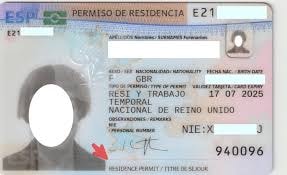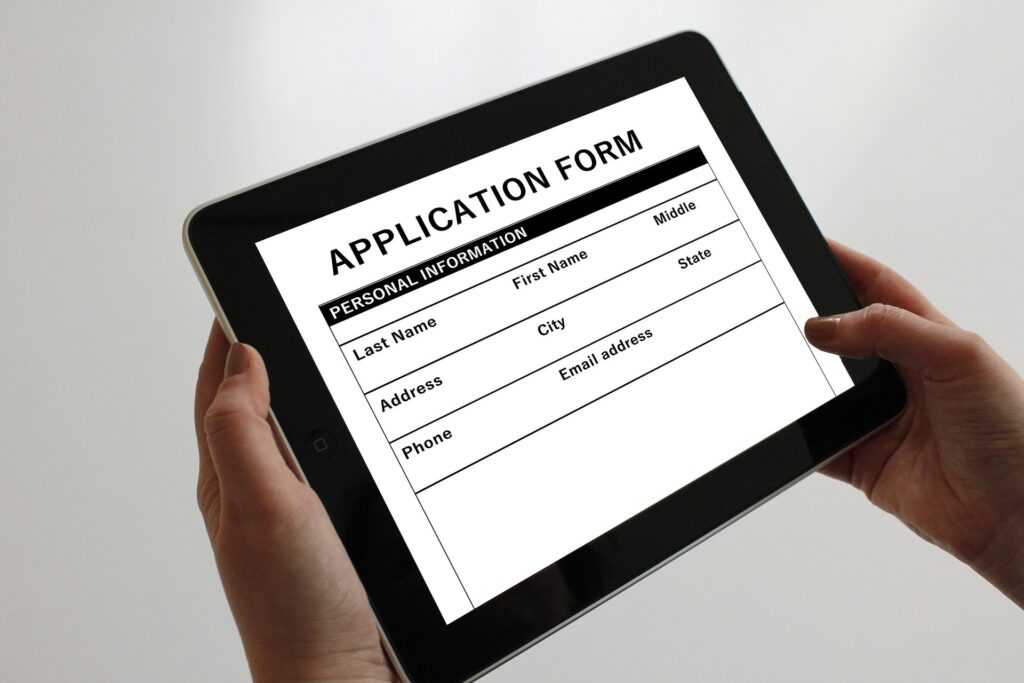
What are the rules for living in Spain after Brexit? Find out how Brexit will impact entry to Spain, driving, healthcare, taxes, pension, and more.
Updated Oct 2024
More than a 3rd of the British expat population in Europe live in Spain as expats. But gone are the days when you could freely move, live, work, study, or retire in any EU country of choice. Since 2021, all Brits are now classified as non-European citizens
From an immigration perspective, this clearly has an impact on entry requirements to Spain, your duration of stay, and what kind of activities you’re legally allowed to do. British nationals now face new conditions for residency, visa requirements for education, and access to public services, underscoring the bureaucracy introduced post-Brexit. To help you through this, we’ll go over the new rules for living in Spain after Brexit. Additionally, UK citizens moving to Spain post-Brexit will need a biometric residence card.

Some aspects that British expats are most concerned about include:
Continuing to live in Spain. The process and requirements to move to Spain after Brexit have changed, with new residency conditions and financial prerequisites for UK citizens.
Paperwork needed to legally reside in Spain
Studying in Spain
Working in Spain
Taxation
Driving in Spain
Healthcare access
Retiring and pension access
UK citizens can continue living in Spain after Brexit as agreed upon in the European Union Withdrawal Act. Moving to Spain after Brexit involves updated procedures and requirements, including changes to visa and residency regulations, and a more complex application process.
The Withdrawal ACT (WA) included a transition period during which UK citizens who’ve moved to Spain prior to January 1st, 2021 could register as a resident to get a special residence permit. This residence permit ensures that all UK citizens, and their dependents, can continue enjoying the same rights as pre-Brexit.
Under this Act, British citizens who’ve lived in Spain for 5 years or more had the opportunity to exchange their existing residence permit and get a long-term residence permit (permiso de residencia de larga duración) valid for 10 years. Those who’ve yet to complete 5 uninterrupted years of residence in Spain can still apply for this long term residence permit after 5 years of legal residence.
2. What are the requirements for moving to Spain after Brexit?
After Brexit, all British citizens are required to ensure they’ve proper documentation to legally live in Spain as a resident. The Spanish Consulate plays a crucial role in the visa application process, including submitting necessary documents and attending personal interviews. Additionally, obtaining a biometric residence card is part of the residency requirements:
Get your NIE number, your foreigner tax identification number this is quick and easy to do.
Get your residence permit or Tarjeta de identidad de extranjero (TIE) within 30 days of your arrival.
Register yourself at the city hall to get your certificado de empadronamiento
Visa Options for UK Citizens

Visa options for UK citizens:
Work visa
Student visa
Tourist visa
EU Blue Card: This visa is for highly skilled workers and requires a job offer with a salary above a certain threshold.
Types of Visas Available
When moving to Spain from the UK after Brexit, UK citizens have several visa options to consider, each catering to different needs and circumstances:
Non-Lucrative Visa (NLV): Ideal for those who wish to live in Spain without engaging in any work activities. This visa requires proof of financial self-sufficiency and private health insurance.
Work Visa: For individuals who have secured a job offer from a Spanish company. The employer must sponsor the visa application and provide evidence of the job offer and the applicant’s qualifications.
Student Visa: Designed for those who plan to study in Spain. Applicants must show proof of enrollment in a Spanish university and demonstrate sufficient financial resources to support their stay.
Golden Visa: This visa is available to individuals who invest in Spanish real estate or start a business in Spain. It offers a fast-track residency permit and the opportunity to live and work in Spain.
Family Reunification Visa: For family members of UK citizens already residing in Spain. This visa allows them to join their family member and live and work in Spain.
Entrepreneurship Visa: For those who wish to start a business in Spain. Applicants must present a viable business plan and demonstrate sufficient financial resources to support the business and themselves.
How to Apply for a Visa

The visa application process for UK citizens can be complex and time-consuming. Here’s a step-by-step guide to help you navigate the process:
Step 1: Choose the correct visa: Determine which type of visa suits your circumstances best.
Step 2: Gather required documents: Collect all necessary documents, including a valid passport, proof of financial resources, health insurance, and a job offer or enrollment in a Spanish university.
Step 3: Submit the application: Submit your application to the Spanish embassy or consulate in the UK.
Step 4: Apply for a biometric residence card: Once your visa is approved, you will need to apply for a biometric residence card as part of the documentation required.
Step 5: Wait for the decision: Wait for the Spanish authorities to process your application and make a decision.
It’s highly recommended to seek the advice of a qualified immigration lawyer to ensure that your application is submitted correctly and efficiently.
Registration and Residency
Registering with the Local Authorities
Once you’ve obtained your visa and arrived in Spain, the next step is to register with the local authorities. Here’s how you can do it:
Step 1: Obtain an NIE number: Apply for a Spanish tax identification number (NIE) at the Spanish embassy or consulate in the UK or at a Spanish police station.
Step 2: Register with the local authorities: Register with the local authorities (padrón) at the town hall (ayuntamiento) in the area where you will be living.
Step 3: Apply for a biometric residence card: As part of the registration process, you will need to apply for a biometric residence card (TIE) at the local foreigner’s office (oficina de extranjeros).
Step 4: Register with the social security system: Register with the Spanish social security system (Seguridad Social) to access public healthcare and other benefits.
It’s essential to note that the registration process can vary depending on the region and local authorities. Therefore, it’s advisable to seek the guidance of a qualified immigration lawyer to ensure that the registration process is completed correctly and efficiently.
Unlike before, British students are now required to apply for a Spain student visa to legally stay and study in Spain.
The other requirement’s that you must get a TIE number (residence permit) within 30 days of your arrival in Spain if your course’s more than 6 months long. Additionally, students staying longer than 6 months need to obtain a biometric residence card.
One of the biggest blows for British people as a result of Brexit’s finding a company that sponsors a work visa. The Spanish government has played a significant role in implementing new tax regulations affecting British citizens living in Spain. Finding a job in Spainisn’t as easy anymore as you would need a Spanish company to convince the government that they couldn’t find any EU citizen suitable for the job. In other words, say goodbye to jobs like bartending, event planner, or office assistant because those employers won’t sponsor a visa. Additionally, you will need to obtain a biometric residence card for legal employment.
To find a job that will get you a visa, you’d be better off by applying for jobs that either require highly skilled migrants or jobs that are on the government’s official job shortage list.
If you want to become a freelancer (autónomo), then the situation’s more complicated and time-consuming. Read more in our guide to becoming an autónomo in Spain
Self-Employment and Entrepreneurship
Establishing a Business in Spain as a UK Citizen
Establishing a business in Spain as a UK citizen can be a rewarding venture, but it requires navigating a series of legal and bureaucratic steps. The Spanish authorities have specific requirements for UK nationals who wish to start their own business in Spain post-Brexit. Here’s a step-by-step guide to help you through the process:
Choose a Business Structure: Decide on the type of business entity that best suits your needs. Options include a sole proprietorship, partnership, or limited company. Each structure has different legal and tax implications, so choose wisely.
Register with the Spanish Authorities: You must register your business with the Registro Mercantil (Commercial Registry) and the Agencia Tributaria (Tax Agency). This step is crucial for legal recognition and tax purposes.
Obtain a Tax Identification Number (NIE): The NIE (Número de Identificación de Extranjero) is essential for all financial and legal transactions in Spain. You can apply for it at the Spanish embassy or consulate in the UK or at a police station in Spain.
Register with the Spanish Social Security System: As a self-employed individual, you need to register with the Spanish social security system (Seguridad Social). This registration is necessary for accessing public healthcare and other social benefits.
Obtain Necessary Licenses and Permits: Depending on your business type, you may need specific licenses and permits. These can vary by region and industry, so check with local authorities to ensure compliance.
Starting a business in Spain involves several steps, but with careful planning and the right advice, it can be a smooth process. Consulting with a lawyer or accountant familiar with Spanish business law can provide valuable insights and help you avoid common pitfalls.
Family Reunification
Family Visas for UK Citizens in Spain
For UK citizens living in Spain, family reunification is a vital aspect of maintaining close family ties. The Spanish government offers a family reunification visa program that allows UK nationals to bring their family members to Spain. Here’s what you need to know:
To be eligible for a family reunification visa, you must meet the following criteria:
Be a UK Citizen: You must be a UK citizen residing in Spain with a valid residence permit.
Have a Qualifying Family Member: The family member you wish to bring must be a UK citizen related to you by blood or marriage.
Meet Income Requirements: You need to demonstrate sufficient financial means to support your family members. The current requirement is €7,200 per year for a single person.
Have Health Insurance: You must have health insurance that covers both you and your family members in Spain.
The family reunification visa process involves several steps and requires the submission of various documents:
Passport: A valid passport for each family member.
Birth Certificate: A birth certificate for each family member.
Marriage Certificate: If applicable, a marriage certificate for your spouse or partner.
Proof of Income: Documentation proving that you meet the income requirements set by the Spanish government.
Health Insurance: Proof of health insurance coverage for you and your family members.
The process can take several months, so it’s advisable to start early and ensure all documents are in order. Consulting with a lawyer or immigration expert familiar with Spanish immigration law can help streamline the process and increase the chances of a successful application.

As a British citizen living in Spain, you’ll need to pay progressive taxes on your worldwide income and assets.
This’s a huge change as prior to Brexit, your worldwide income didn’t get taxed if you spent more than half a year in the UK as the UK didn’t tax overseas non-remitted income.
After Brexit, you’ll need to pay tax on your worldwide income (including British savings and pension). This’s because as a resident permit holder, you’re required to spend more than 183 days (half a year) in Spain if you want to renew your visa. Since spending half a year in Spain makes you a tax resident, you’ll need to pay taxes on your worldwide income. Additionally, meeting the financial prerequisites for residency can impact your tax obligations, as it often involves demonstrating sufficient income or savings.
However some Pensions from the UK are tax free in Spain, such as Police, Military, although they go towards your progressive tax income, taxation remains with the UK. To understand how much tax you need to pay, we recommend getting professional tax advice.
Tax reliefs for British citizens in Spain
Paying tax on your worldwide income’s no fun. Thankfully, there’s a dual tax agreement between Spain and the UK. Which means you don’t have to pay double tax on the same income. Additionally, having a Spanish residence permit is necessary for tax purposes, ensuring you can benefit from these agreements and reliefs. If you hold an EU Blue Card, be aware of the specific tax implications it may have on your obligations.
Spain also offers various tax reliefs depending on your economic situation. You could also apply for the STR (Beckham’s Law), which allows new residents in Spain to pay non-resident taxes on Spanish income for the first 6 years, that’s no worldwide income.
Property tax
Since a large number of British citizens own property in Spain, we’ve dedicated a section to give you clarity on this. UK citizens seeking to move to Spain post-Brexit have several options, including the EU Blue Card, entrepreneurship visa, and Golden Visa, each with specific financial prerequisites for families wishing to reside and work in Spain.
Prior to Brexit– UK citizens who only owned property but didn’t live in Spain could enjoy a reduced tax rate of 19% on your Spanish rental income, that’s the same as Capital Gains tax-bands
After Brexit– if you don’t live in Spain and want to rent out your property, you’ll pay the non-resident tax of 24% on your Spanish rental income.
If you don’t rent it out, you’ll need to pay tax on 24% of 1.1% or 2% of the cadastral value of the property. You’ll also need to pay Spanish property tax, which varies per region and ranges from 0.4% to 1.1% of the cadastral value of the property.
Did you know that you could also apply for residency in Spain by purchasing a property worth €500,000 or more? This’s called the investor visa or the Golden visa and it allows you to bring your family with you as well. Even if you bought as far back as 2013 you can still apply for the “golden visa” although as of 2024 the Government has announced it will close this program. As of Oct 24 no official announcement has been passed by Parliament.
Due to Brexit, your UK driving licence isn’t valid in Spain after 6 months of your legal residence. So you’ve to obtain a Spanish driving license by handing in your licence which will be exchanged to a Spanish driving licence. Additionally, you need to obtain a biometric residence card for this exchange process.
To obtain Spanish citizenship, UK citizens must meet several requirements, including a ten-year residency period, integration into Spanish culture, and renouncing British citizenship, as dual citizenship is not allowed.
If you have a licence from Jersey, Guernsey etc you may have to retake the driving exam; otherwise, you risk getting a fine.

As a British citizen living and working in Spain, you’ll get access to Spain’s healthcare system for free. You’ll only need to get your Spanish social security number to register at a health centre and receive your Spanish health insurance card. To stay in Spain, you will need to apply for a Spanish visa, which involves submitting necessary documents at the Spanish Consulate. Different types of visas exist based on the purpose of your stay, such as study or non-lucrative visas. Additionally, you will need to obtain a biometric residence card for accessing public healthcare.
If you’re unemployed or aren’t eligible for state healthcare and have legally lived at least a year in Spain, you could swap your personal health insurance to convenio especial. This’s a special low cost, opt-in health insurance that covers basic healthcare needs.
If you’ve reached the legal pension age in the UK, you can apply for free healthcare in Spain by filling out form S1. In this case, the NHS pays for your healthcare bills in Spain. Naturally, this means you cannot also register for convenio especial or Spanish healthcare yourself.

Retiring in Spain as a British citizen’s still possible after Brexit. But sadly at a higher cost
Until Brexit, British citizens needed to prove they had at least €5,538 per year to become a resident in Spain. After Brexit, they need to show at least €27,792.96 per year. Financial prerequisites for obtaining a non-lucrative visa for retirement include demonstrating sufficient financial means to support yourself without working.
To start the process of retiring in Spain as a British citizen, you need to apply for a non-lucrative visa. Since you cannot work on this visa – not even remote work – you’ll need to show proof of sufficient financial means for your duration of stay.
Sufficient financial funds for non-EU citizens is calculated as 400% more than the IPREM, an income index used by the government to determine financial aid and benefits. In 2023, the annual IPREM threshold is €7,200.
To qualify for the non-lucrative visa, you must show you’ve at least €28,800 for the entire year in your bank account. And if you want to bring along any family members or dependents, you need an additional €7,200 per person per year.
We recommend you show you’ve more than the minimum requirement; not only as a buffer but also because different consulates or regions in Spain might expect a slightly higher amount
Number of people Recommended Financial Fund (annual)1=€28,000 2 =€36,000 3=€43,000 4=€50,000
To prove your financial means, you could present an up to date bank statement dating 6-12 months, dividends, rent, savings, pension income, credit cards with certified bank certification, etc. Again, no remote work income as that’s not allowed!
The funds can be in other currencies, but you must ensure that they add up to the minimum requirement in Euros. Additionally, all of the financial proofs must have your name to show they are yours.
Aside from that, you also need to prove you’ve private health insurance (until your application for form S1 is accepted); a medical certificate proving you’re not a threat and in good mental and physical condition; a police report showing you’ve got a clean criminal record.
If you want to renew this visa, you need to show you’ve lived in Spain for at least 183 days and that you’ve financial funds for 2 years as the renewed visa will be valid for 2 years.
Long-term Residency and Citizenship
For those who’re planning to make the move to Spain in 2025, this guide should have answered some of your questions. The implications of Brexit on UK nationals have made the processes for travel, residence, and family reunification more complex, including the need for a biometric residence card and understanding visa-free entry provisions. We wish you good luck in your brand new adventure!
